What IS An Ethical/Reputable Breeder? Puppy Mills - Businesses who breed dogs many times during their lifespan, often in poor conditions, with little to no healthcare or affection. These dogs are bred in large numbers and the business usually breeds many different breeds of dogs. The only concern is profit. Backyard Breeders - People who breed their dog without following through the proper steps to ensure their dog is a good candidate for breeding and will produce offspring that contribute to bettering the breed or making good pets. Backyard breeders rarely do any health testing/genetic screening, won't take puppies back if needed, may breed their dogs excessively or just a single time and may stick to a single breed or a handful of breeds. Often breed to "make back the money they spent on their dog", "earn a little side cash", or because they feel like their dog really needs to have at least one litter of puppies (or that they just really want to see how their dog is as a mom or dad).
Ethical/Reputable Breeder Checklist Note that individual breeders vary and this is a general checklist. If the breeder you're looking into has more than a few exceptions from the following list however, we would recommend finding another breeder who will likely provide you with better puppies and more long term support.
How to Find an Ethical/Reputable Breeder
Once you have a potential breeder's info, get as much information about them online or from your source as possible. How much of it matches up with your list? If they fit most of the list, the next step is to contact them! Many breeders are somewhat busy and don't always respond right away. Give them a couple of business days and try again. If that doesn't work, switch to another method of communication. Maybe they're more responsive via Facebook messenger than email. For the record, I've NEVER had a pet professional get back to me when I've tried to contact them via an email form on their website. I wouldn't start there.
Conclusion It takes a little time and effort, but learning what to look for to find a good breeder can be so rewarding if you can manage to take home an amazing puppy from their incredible breeding program. These dogs are usually a joy to live and work with. A good breeder and breeding program can make all the difference. If you have any questions or if this seems overwhelming, please contact us and we'd be happy to help you get started with finding some options. Additional Resources Facebook Post
Copied from another breeder: POTENTIAL OWNER: How much is the puppy? BREEDER: $3,500 POTENTIAL OWNER: What?? It's way too expensive!! BREEDER: What do you think would be a good price? POTENTIAL OWNER: No more than $500. You breeders are so over priced. BREEDER: I am sorry you see it this way, why don't you try it yourself? POTENTIAL OWNER: But I've never done it! BREEDER: For FREE I can teach you how to do it, and in addition you will have the knowledge to do it again. POTENTIAL OWNER: Perfect, thank you! BREEDER: To start you will need a female(average cost $3000 and up). Also a male(average cost $3000 and up) or semen (average $1000 and up). You will need to show them to their championship to show they meet the breed standard(Minimal $2000 with travel & fees). You will need to do genetic & health testing on them, averages about $750 per dog. Raise and provide daily care, feeding & grooming for 2 years. (So minimal $150 per month) POTENTIAL OWNER: But I don't have that much money... BREEDER: For $500 you can raise a liter and then keep one of the puppies. Obviously, you will pay the cost of whelping & care. POTENTIAL OWNER: I can do that. BREEDER: OK so I have a female due to whelp in 2 weeks. You will need to be available 24/7 around the clock for at least 8 weeks to help with delivery and care. POTENTIAL OWNER: Eight weeks?? it's way too much time for me! I have to work. BREEDER: You will also need the reproductive vet to do xrays($200-$500), possibly progesterone testing($75-$250) & C-section($1000-$5000) and initial vet care on pups until old enough to be placed. Have on hand a scale, thermometer, latex gloves, sanitizer, absorbent tissues, scissors, hemostats, heating pad, whelping box, blankets, cleaning supplies, appropriate food with supplements for mothers, formula, medications & hand feeding supplies in case of emergency.... POTENTIAL OWNER: But I don't have all these things! BREEDER: For $1000 you can buy them. POTENTIAL OWNER: Ummm .... You know, I think it might be better if I just buy a puppy. BREEDER: Wise decision. For us breeders there are no vacations or holidays, while you go to visit with family & friends we are home at our dogs side caring for them. It is a no breaks commitment. THIS IS THE REALITY When you choose a professional you don't only pay for the puppy but also: Tools, knowledge, experience, love, time, sacrifices, etc.
1 Comment
Let's continue what to look for when finding an ethical, skilled dog trainer with an up-to-date tool kit. In part 2 we'll discuss the red flags (bad), the green flags (good) and other considerations to think about. Quick Test There are competent and knowledgeable trainers across different disciplines of training just as there are incompetent and uneducated trainers across different disciplines. If you want to quickly figure out if the trainer you're talking to knows their basics, ask them to explain the difference between positive reinforcement, positive punishment, negative reinforcement and negative punishment. These are the 4 quadrants of behavior and every trainer should know what they are, an example of each and when it's important to purposely utilize which quadrants. Ready for your cheat sheet? It's super easy. Positive means you add something. Negative means you take something away. Reinforcement means you increase a behavior. Punishment means you decrease a behavior. That's it. Examples: Positive Reinforcement - you give your dog a treat for sitting, which causes them to sit more often because something good happened when they sat. Negative Reinforcement - removing a stimulus your dog doesn't like from their environment (like a vacuum cleaner or a dog across the street) when your dog turns their attention to you. Positive Punishment - you say "ah ah!" when your dog (who has a good history of leaving food alone and is sensitive to verbal corrections) tries to take food from a table. Negative Punishment - you leave the room when your dog jumps on you. Red Flags
- When they use the same tools and exercises for every dog they work with. This doesn’t include safety gear like your basic leash and collar or food rewards. But if they put every dog into a board and train regardless of personality or background, they use an e-collar for every dog they work with, they use a clicker for every dog they work with, etc. They should consult with you about your dog’s history, your preferences, then make a personalized plan. - If they use tools that have a high likelihood of being aversive, causing a stress response and creating additional physical/emotional damage to dogs, they better have a dang good reason. These tools include physical corrections, e-collars, choke collars and prong collars, but this can include anything that your dog finds aversive. Even food rewards can be used in an abusive manner. For the record, the majority of trainers who use these tools because they genuinely want to help and create positive outcomes. They just might not have as big a toolbox as other trainers who dedicate more time and effort to productively honing their craft with updated methods and techniques. They’re doing the best they can with the information they have.
- Similarly, trainers who seem to offer every service. Ever heard the phrase “Jack of all trades – Master of none.”? If they focus on too many things (basic obedience, reactivity, agility, bitework/protection, trick training, search and rescue, service dogs, etc.), they aren’t going to get really good at any of those. Unless it’s a really large training company with a lot of different trainers who each focus on a few areas, you’re not going to get the most knowledgeable service. I personally know trainers who'll often only spend a few days/weeks learning a new skill before offering those to the public. In some cases, like a technique for loose leash walking, to get better attention or a training game, that's fine. But for an entire branch of training, like any dog sports, service dog work, competition scent-work, etc, these skills take much longer to learn and years to master. - If they don’t have a contract and don’t take any form of client history about your dog. It’s a sign that they aren’t legally organized, which means less protection for you. They may not have insurance or have their business license. If they aren’t taking client history, they don’t have the information needed to better build a custom training plan (for private lessons). - Really low pricing. Unless they’re running a massive promo and/or they’re getting some other value from you, if they’re charging less than $70 a session, there’s a reason. It’s probably because they’re a hobby trainer who has minimal experience and education, probably no license, probably no liability/business insurance, might not have a business set up or registered, and might make all of your problems worse. You get what you pay for. Green Flags - They use terms like positive reinforcement, science-based, fear-free, and LIMA (least intrusive, minimally aversive). Although you do still need to be careful, because again, these are marketing terms and aren’t regulated. Anyone can use them and not actually use those methods. I know trainers who claim to use LIMA methods who actually use pretty outdated and stressful methods. Positive reinforcement in particular is a huge marketing buzzword right now and a lot of trainers will use positive reinforce one second, then use a harsh correction the next second. This is extremely confusing and stressful for your dog.
- They ask you lots of questions and ask you to participate in the training process as much as possible. They also ask for your consent and read your dogs’ body language to make sure they’re comfortable. They stop if your dog shows signs of stress or anxiety. They listen to your concerns and modify the training plan to meet your needs. - They don’t typically badmouth other trainers and they don’t often have videos of dogs who are stressed, reactive, showing signs of fear, aggression, etc. Their goal is to never get the dog in those states of mind and to keep the dog as happy and stress-free as possible. Real, ethical dog training is fairly boring to watch. It doesn’t make for good TV (which is why you don’t see science-based trainers with TV shows).
- They don’t make time-based or behavior-based guarantees. The reason for this is each dog is an individual and will behave differently and take different amounts of time than another individual to get from point A to point B. Putting a time limit on behavior puts a lot of pressure on the trainer and the dog and turns the process into an aversive experience for everyone involved. It’s setting everyone up for failure. Guaranteeing behaviors of a living animal is risky at best. Guaranteeing the behavior of a live animal that doesn’t live with you where you can manage their enrichment, day-to-day training and interactions with other people and animals is impossible. There are far too many variables. We cannot and would not control the behavior of others just to make a silly marketing guarantee. Other Considerations - Reviews don’t mean what you think they mean. I mean this with all the love in the world for dog owners – many dog owners haven’t learned to read their own dogs’ body language or interpret what their dog is trying to tell them. Many dog owners seem to think the easiest solution is the best solution. Many dog owners also just buy into whatever any dog trainer tells them, without looking at the whole picture. And a whole ton more dog owners don’t feel comfortable for various reasons leaving honest reviews of bad experiences. There are also a number of ways to collect lots of non-authentic 5-star ratings. All of this adds up to a decent number of companies that have just the worst training methods, ethics, customer service, etc (I mean, I can tell you some stories, and not just about dog training companies) that have dozens to hundreds of 5 star reviews. The best thing to do with reviews is to look at the owner responses to the negative reviews. That will tell you a lot more about the business than the reviews will. You can also ask trusted friends and family members about their experiences.
- Similar to reviews, just because a trainer has a large following, travels to lecture, gives lots of workshops or charges sky-high pricing, does NOT necessarily mean they’re a skilled trainer. They may just have good people skills. There are also some amazing dog trainers who can train circles around a lot of the more popular trainers who don’t have any following yet because they don’t know how to market themselves.
The dog training industry in the US isn’t regulated. It’s regulated very few places in the world actually.
As always, there are exceptions to every rule, so the number one thing to keep in mind is how you and your dog feel about the experience you have. Ask yourself these questions when working with a dog trainer: 1. Do I feel comfortable with this person? 2. Do they listen to me and my concerns? 3. Does my dog look happy during training? 4. Does my dog appear to be excited/happy when they see the trainer? (Obviously this doesn’t apply if your dog has a history of reactivity, fear of strangers, or they don’t seem to care for anyone outside the family already) 5. Does your dog get to make choices during the training process and choose to be involved in the training process? 6. Does the trainer force your dog to do things they don’t like? 7. Does the trainer customize the training plan for your individual dog (for private lessons) or do they use the same tools/exercises for every dog they work with? 8. How does the trainer respond to negative reviews? If something happens, do you feel comfortable with them responding the same way to you? 9. Is the training plan effective? Changing behavior can take time. Some behaviors take more time than others, but if you’ve been training for weeks or months with no change at all, that’s a red flag. 10. Is the trainer willing to refer you to someone better qualified if needed? Are they willing to place your dogs’ best interests over their paycheck? These include: Dog Psychologist, Master Trainer, Expert in Dog Psychology, Dog Behavior Specialist, Expert Consultant in Dog Psychology, or any similar variations. People make up some weird stuff. Additional terms like Balanced, LIMA, Science-based, Positive Reinforcement, Force Free, Fear Free, etc, usually give you more information as to the trainer's methods and tools. However, you still need to carefully vet the trainer to ensure they actually use and understand the methods instead of simply using marketing buzzwords.
Behavior Consultant – this is a dog trainer who has earned this title through a butt-ton of experience and through passing a knowledge (and sometimes skills-based) certification exam. They have to agree to a code of conduct and ethics and must upkeep their certification with continuing education units. Those who fail to do so will lose their behavior consultancy status. Example: Allie and Emily with Pet Harmony Behaviorist/Behaviourist – This is a professional who has a master’s degree or higher in one of the behavioral sciences and has passed their certification test. They are usually affiliated with a veterinarian organization. They are able to diagnose and prescribe. (Note that true Behaviorists aren’t common and this is a regulated field. There are trainers who claim to be behaviorists, who don’t even know what a real Behaviorist is. Check their credentials!) Example: Lynne with Pets Decoded Veterinarian Behaviorist – This is what it sounds like – a veterinarian who also has their Behaviorist certification. These pros are the top of the behavior food chain and take the most extreme cases. They often use a combination of behavior modification, management and medication.
|
Kat & Haylee
Just a couple of animal geeks trying to make the world a better place. Archives
February 2023
Categories
All
|
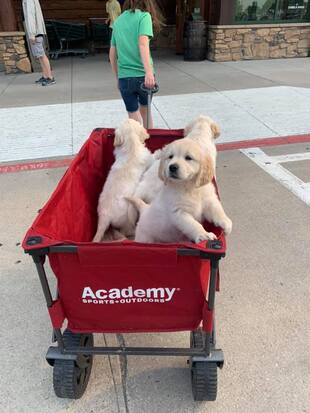


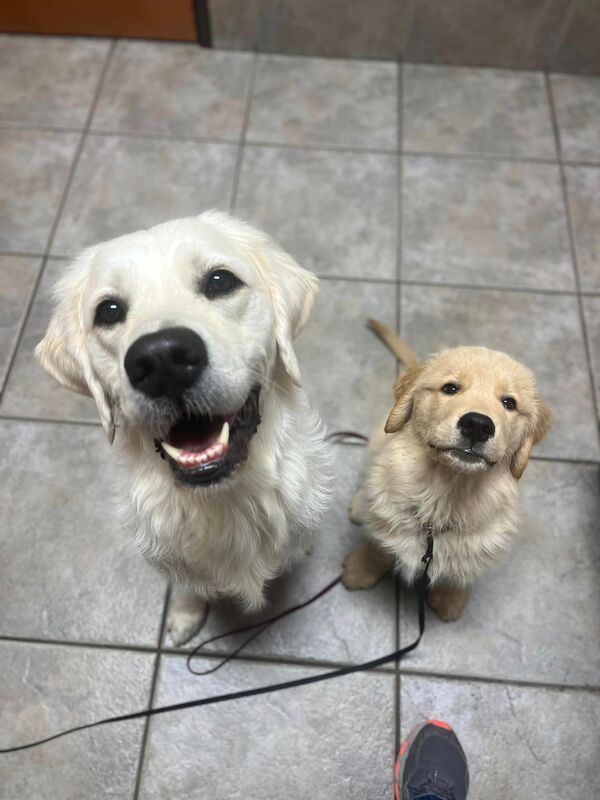
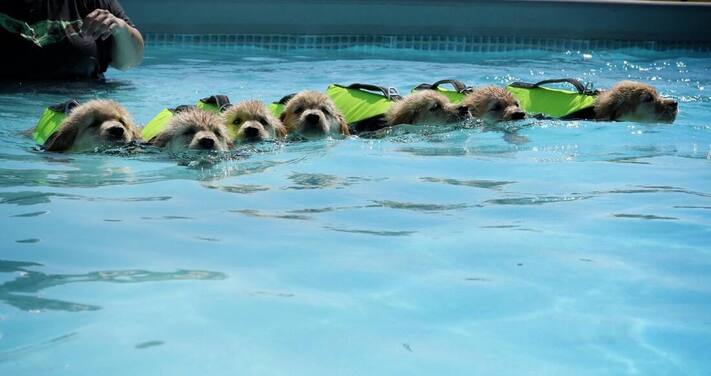
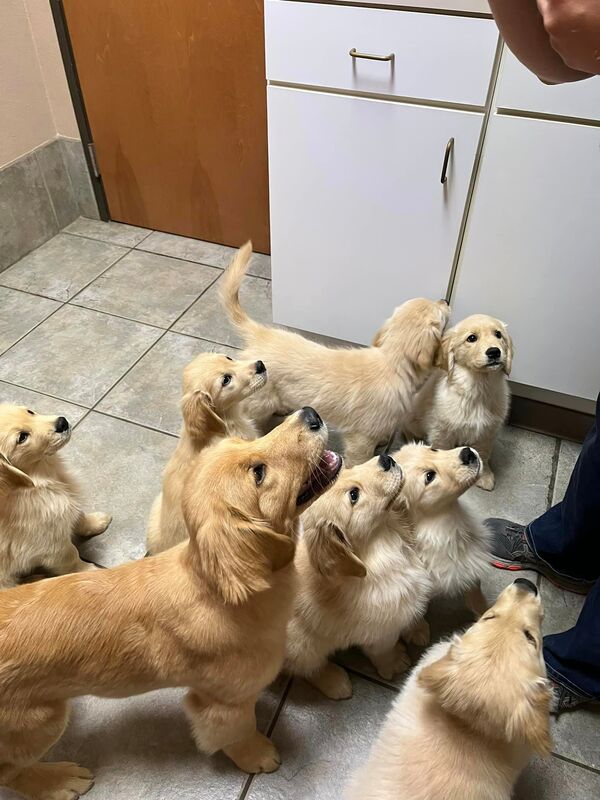
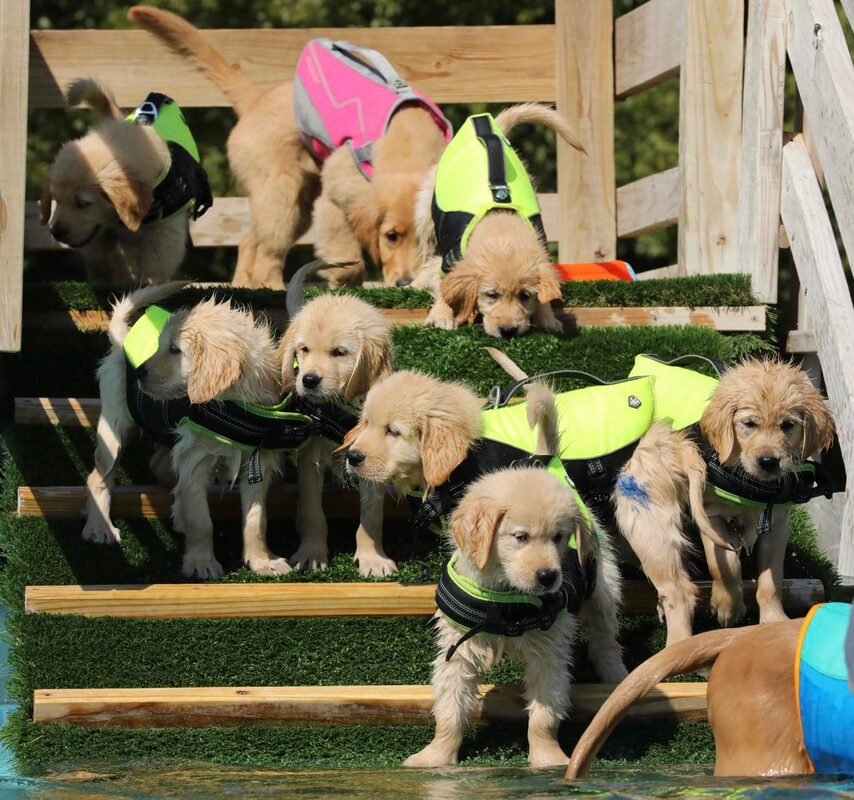








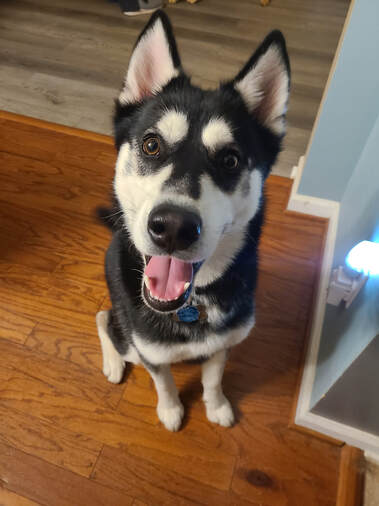
 RSS Feed
RSS Feed